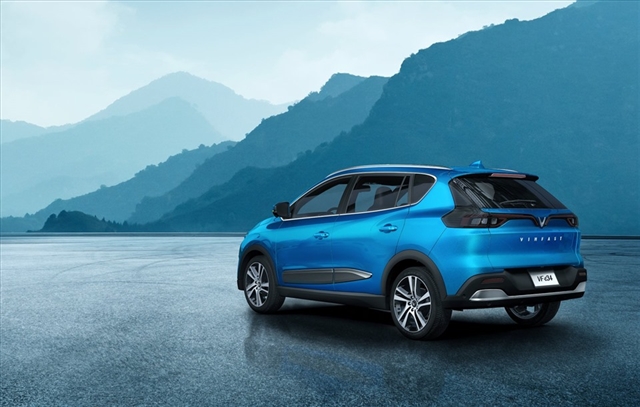Educating Vietnamese consumers about electric vehicles (EV) should be the top priority for brands to win the market, experts said.

Educating Vietnamese consumers about electric vehicles (EV) should be the top priority for brands to win the market, experts said.
The Vietnamese EV market is still in its infancy, so that it is natural for consumers to be sceptical about an EV’s functionality versus the petrol-fueled automobiles they’ve been using for decades, experts said.
In a recent report entitled “Sustainability in Motion: Opportunities and challenges in Việt Nam’s EV Market” by Vero, it was found that more than half of those who don’t intend to buy EVs are unfamiliar with EVs.
Another reason that consumers don’t intend to buy EV is the technology.
The report found that the infrastructure gap is creating range anxiety among consumers. About 30 of 91 respondents stated that they do not intend to buy an electric car, with 87 per cent saying the lack of charging stations poses significant challenges, especially on long road trips.
Notably, Gen Z and Millennial consumers are the least keen to buy an EV. The growing popularity of ride-hailing services and the current economic situation make young consumers hesitant to shift to EVs.
These generations currently make up more than half of the Vietnamese population and are expected to account for around 40 per cent of Việt Nam’s consumption by 2030.
With their proficiency in innovative technologies and high social awareness, it seems a contradiction that they are the least interested in shifting gears when it comes to electric cars.
The reason is that the rise of ride-hailing services in Việt Nam has made traveling around the city or even between cities easier, making owning a car a low priority among Gen Z and millennials.
Furthermore, with the current economic situation, the cost of owning and maintaining a car is significantly higher than their current incomes. According to the survey, respondents aged between 18 and 34 have an average income of VNĐ10-25 million (US$400-$1,000).
It’s also worth noting that these young consumers are known to prefer experiences over possession, which explains why they prefer renting a car or using ride-hailing apps to owning one.
By prioritising education, brands can bridge the information gap, dispel myths and provide clear and transparent information about the advantages of EV, thereby empowering consumers to make well-inform decisions.
“Brands entering the EV race have a golden opportunity to capture early adopters, build trust, and establish a strong foothold to reap long-term benefits. But to do so, they’ll want to address consumer pain points, tailor EV models to suit local needs, maintain authenticity with sustainability messaging, promote green mobility as a lifestyle, and partner with like-minded industry players,” says Nguyễn Lan Trang, Strategic Planner at Vero.
Việt Nam is on a journey towards the ‘future of mobility,’ as outlined by the Government’s green energy transformation action programme. By aiming to achieve net zero emissions, the programme sets a target for all vehicles on the road to be powered by green energy by 2050.
The country of 98 million people has already made notable strides in embracing electric motorbikes, positioning itself as the world's second-largest electric two-wheeler market, after China.
Electric cars, however, are a different story. While several automotive brands, including homegrown EV manufacturer VinFast, have established their presence in the local market, Việt Nam only accounts for 0.7 per cent of total EV sales in Southeast Asia, according to a Statista survey.
Despite the current barriers, the local EV landscape is expected to expand as the date for Việt Nam’s net-zero ambition approaches.
The survey of 91 Vietnamese consumers was conducted across various age groups and levels of exposure to electric vehicles, and the respondents provided insights into their motivations for considering an EV purchase and the factors driving their decisions.
The Vietnam Automobile Manufacturers Association forecasts that Việt Nam will reach one million EVs around 2028 and about 3.5 million by 2040.
“As the EV landscape in Việt Nam continues to evolve and grow more competitive, both foreign and local car brands must gain a deep understanding of this promising market in order to thrive and drive the future of sustainable mobility in the country,” said Trần Kim Hoàng Yến, PR account manager and leader of Vero’s Vietnam Tech & Mobility practice. — VNS
- Tags
- EV market




